Keynote Speakers (A-Z)
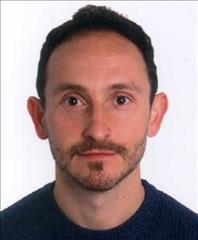
Francisco Aragón Artacho
University of Alicante, Spain
Split and conquer!
When an optimization problem is structured, it is normally advantageous to use this feature when designing algorithms to solve it. Following the divide-and-conquer paradigm, splitting algorithms iteratively solve simpler problems that are defined by separately using some parts of the original problem. In this talk, we will recall some classical methods and present some recent advances in this subject, such as splitting methods devised by graphs, algorithms in nonconvex settings, and even some heuristics. These methods have relevant real-world applications in different areas, including some problems in data science.
Francisco J. Aragón Artacho is Professor of Statistics and Operations Research at the University of Alicante, Spain. After obtaining a PhD in Mathematics at the University of Murcia in 2007, he worked as an analyst for a private business company in Madrid for nearly a year. Subsequently, he held several postdoctoral positions at the University of Alicante, University of Newcastle (Australia) and the Luxembourg Centre for Systems Biomedicine. His main research topics are in the area of convex and set-valued analysis, with special emphasis in the development of optimization algorithms. He has published more than 40 research papers, the textbook Nonlinear Optimization (Springer, 2019, coauthored by M.A Goberna, M.A. López, and M.M.L. Rodríguez) and the recent popularization book Mathematics in Politics and Governance (Springer, 2024, coauthored by M.A Goberna). He serves as an associate editor of the Journal of Optimization Theory and Applications (since 2024), TOP-Transactions in Operations Research (since 2023), Optimization Letters (since 2022), and Fixed Point Theory (since 2021).
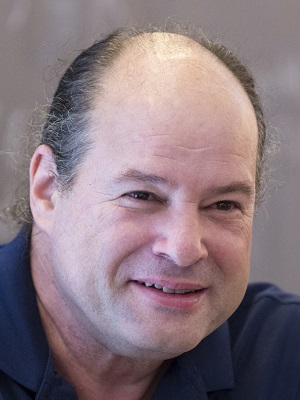
Eitan Bachmat
Ben-Gurion University, Israel
Project Management and Optics
We will introduce a family of problems which examine how slow can task durations be, while still completing the entire project before a given deadline. In particular we examine the class of task durations which are Pareto optimal. We make a very basic observation that such task durations have a property that abstractly resembles the concept of a lens in optics. We then show how this rather abstract connection between project management and optics becomes concrete when we examine the family of airplane boarding scenarios on the project side and a family of material designs known as hyperbolic meta-materials. We show how the bridge goes both ways, leading to the design of very high resolution lenses on the optics side, and insights into good airplane boarding policies on the project management side.
The talk will be self contained, however, some experience with boarding airplanes will be useful.
The talk is based on joint work with Andrea Alu, Sveinung Erland, Enrico Renzi, Yves Simone and Diana Strickland (among others).
Eitan Bachmat received his PhD in Mathematics from M.I.T. and is currently a professor of Computer Science at Ben-Gurion University. Eitan works on problems in the areas of Storage Systems, Performance Analysis, Systems Engineering, Operations Research, Autism and Quantitative and Personalized Healthcare and Medicine, using techniques from Physics, Mathematics and Computer Science. He is an expert on Airplane Boarding and Express Line Queues and how they relate to Relativity theory and Number theory respectively. In 2017 he was part of a team that won the only medical data analysis competition ever organized by the New England Journal of Medicine, the SPRINT challenge. Eitan also works closely with industry and non-profit organizations on diverse applications and holds 41 patents.
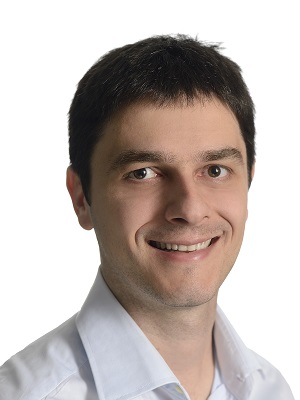
Agostino Capponi
University of Columbia, US
Machine Learning in Finance: Supply Chain Asset Pricing and Data-Driven Dynamic Risk Management
We develop new methodologies that integrate machine learning and AI techniques to address the two most challenging problems in financial engineering, specifically asset pricing and risk management.
Our asset pricing approach introduces a novel data-driven model that captures firm-level characteristics across local sub-graphs of the supply chain. By traversing the supply chain, the model learns how neighboring firm characteristics predict outcomes for a target firm, combining these characteristics non-linearly to create interpretable, tradeable asset pricing factors. These supply chain-derived factors are uncorrelated with those from traditional models and demonstrate positive out-of-sample Sharpe ratios, with most contributions coming from the top five factors. Our findings suggest that combining supply chain and firm characteristics systematically captures unique risks beyond firm characteristics alone.
For risk management, we construct a dynamic framework for high-dimensional factor models, using diffusion maps to uncover the underlying dynamics of common factors in a fully data-driven, nonparametric way. This framework generates low-dimensional embeddings that retain most explanatory power for time series of risk factors. Applied to equity portfolio stress testing across three major financial crises, we demonstrate that our approach outperforms standard methods, which often assume a zero conditional expectation for unstressed factors.
Agostino Capponi is a Professor in the Department of Industrial Engineering and Operations Research at Columbia University, where he is also a member of the Data Science Institute and the founding director of the Columbia Center for Digital Finance and Technology. His current research interests are in financial technology, machine learning in finance, market microstructure, systemic and liquidity risk, climate finance, energy markets, and economic networks.
Agostino’s research has been funded by major agencies, including NSF, DARPA, DOE, IBM, GRI, INET, Ripple, Stellar, and the Ethereum foundation. His research has been recognized with the 2018 NSF CAREER award, a JP Morgan AI Research Faculty award, and the UBRI Innovator award. His research has also been covered by various media outlets, including Bloomberg, the Financial Times, Vox, and Politico.
Agostino is a fellow of the crypto and blockchain economics research forum, and an academic fellow of Alibaba’s Luohan academy. He serves as an editor of Management Science in the Finance Department, co-editor of Mathematics and Financial Economics, and financial engineering area editor of Operations Research. He has held and continues to hold editorial positions at several major journals in his field, including Stochastic Systems, Stochastic Models, the SIAM Journal on Financial Mathematics, Mathematical Finance, and Finance and Stochastics. Agostino is the former Chair of the SIAG/FME Activity Group and of the INFORMS Finance Section, and is currently a member of the Council of the Bachelier Finance Society. Agostino is co-editor of the book Machine Learning and Data Sciences for Financial Markets: A Guide to Contemporary Practices, published in 2023 by the Cambridge University press, and listed as one of the Amazon best sellers in banking and finance.

Álvaro Cartea
University of Oxford, UK
Unintended Consequences of Artificial Intelligence in Financial Markets
Abstract: How can artificial intelligence and learning algorithms affect the integrity of market? We discuss three lines of research:
- Spoofing and quote-based manipulation. Market making learning algorithms will find optimal strategies that manipulate the limit order book. Manipulation occurs to induce mean reversion in inventory to an optimal level and to execute round-trip trades with limit orders at a higher probability than was otherwise likely to occur; spoofing is a special case when the market maker prefers that manipulative limit orders are not filled.
- Market making. We show that algorithms can tacitly collude to extract rents and we show that that tick size (coarseness of price grid) in the limit order book matters: a large tick size obstructs competition, while a smaller tick size lowers trading costs for liquidity takers, but slows the speed of convergence to an equilibrium.
- Breaking anonymity in a limit order book. Empirically, we find that liquidity providers use excessively large limit orders to break the anonymity of limit orders by signaling themselves to other liquidity providers. Importantly, we find that liquidity providers respond differently to signaled limit orders. Specifically, they avoid trading with each other and focus on picking-off soft flow from retail limit orders. We use a model of the limit order book to show that signaling occurs in a collusive equilibrium. In equilibrium, signaling occurs so that colluding firms can identity each other in an anonymous book to avoid sniping each other. This allows colluding firms to share profitable flow from retail limit orders.
Álvaro Cartea is Professor of Mathematical Finance in the Mathematical Institute, University of Oxford and director of the Oxford-Man Institute of Quantitative Finance. Álvaro’s work is at the interface of finance, mathematics, and data science. He has worked extensively on high-frequency and algorithmic trading, and more recently his work focuses on algorithmic collusion and on the unintended consequences of using artificial intelligence in financial markets.

Murat Köksalan
University of Michigan, US
Multiple Criteria Decision Making and its Applications
Humans have been making decisions based on multiple criteria for centuries. The field of Multiple Criteria Decision Making (MCDM) has evolved over the past seven decades, with significant theoretical advancements occurring in the 1960s and 1970s. Since then, numerous algorithms have been developed to support decision-making. More recently, related fields such as multiobjective combinatorial optimization and multiobjective evolutionary optimization have attracted many researchers.
In this talk, I will distinguish between “choice” and “design” problems. The former involves selecting from a set of predefined alternatives based on multiple criteria, while the latter focuses on solving a mathematical model to create (design) new alternatives. I will briefly explore several key approaches to addressing the design problem. Additionally, I will present specialized methods we have developed, alongside my co-authors, to tackle challenges in various domains, including product and process design, public debt management, portfolio optimization, energy auctions, and unmanned aerial vehicle routing.
Murat Köksalan holds a BSc and MSc from Middle East Technical University (METU), Ankara, Turkey, and a PhD from SUNY Buffalo, NY, USA. He has spent most of his career as a professor in the Industrial Engineering Department at METU, where he also served as department chair from 2013 to 2017. He has held visiting professor positions at SUNY Buffalo, NY, USA, Purdue University, IN, USA, Georgetown University, DC, USA, and Aalto University, Finland. Since 2018, he has been with the Ross School of Business at the University of Michigan, Ann Arbor.
His achievements include receiving the Young Researcher Award from the Turkish Scientific and Technological Council, the Gold Medal from the International Society on Multiple Criteria Decision Making (MCDM), the Science Award from the Parlar Foundation, and several INFORMS Case Competition awards. He is the founding president of the INFORMS Section on MCDM, a past president of the International Society on MCDM, and an elected member of the Science Academy Society of Turkey,
His research focuses on MCDM, multi-objective combinatorial optimization, heuristic search, and their practical applications. He enjoys studying the history of his field and developing teaching cases based on real-world problems. Outside of academia, he is an avid skier and tennis player.
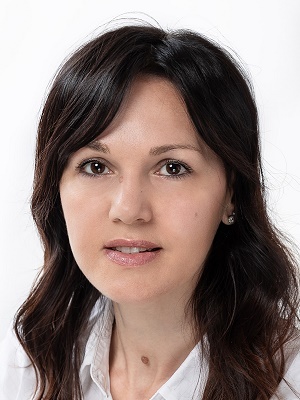
Francesca Maggioni
University of Bergamo, Italy
Bounding large-scale optimization problems under uncertainty
Many real world decision problems are dynamic and affected by uncertainty. Stochastic Programming provides a powerful approach to handle this uncertainty within a multi-period decision framework. However, as the number of stages increases, the computational complexity of these problems grows exponentially, posing significant challenges. To tackle this, approximation techniques are often used to simplify the original problem, providing useful upper and lower bounds for the objective function’s optimal value.
This talk explores methods for generating bounds for a wide variety of problem structures affected by uncertainty. We begin by discussing bounds based on scenario grouping under the assumption that a sufficiently large scenario tree is given but is unsolvable, both in the context of stochastic programming and distributionally robust optimization. Next, we extend these techniques to address more complex problems, including multi-horizon stochastic optimization and decision-dependent stochastic optimization.
Finally, the talk introduces the integration of these bounding methods with Benders’ decomposition, demonstrating how this combination can substantially reduce computation times and enhance the stability of the algorithm.
By exploring these approaches, the talk aims to inspire further advancements and innovative solutions in tackling large-scale optimization problems under uncertainty
Francesca Maggioni is Professor of Operations Research at the Department of Management, Information and Production Engineering (DIGIP) of the University of Bergamo (Italy). Her research interests concern both methodological and applicative aspects for optimization under uncertainty. From a methodological point of view, she has developed different types of bounds and approximations for stochastic, robust and distributionally robust multistage optimization problems. She applies these methods to solve problems in logistics, transportation, energy and machine learning. On these topics she has published more than 60 scientific articles featured in peer-reviewed operations research journals. In 2021 her research has been supported as principal investigator by a grant from the Italian Ministry of Education for the project “ULTRA OPTYMAL Urban Logistics and sustainable TRAnsportation: OPtimization under uncertainTY and MAchine Learning”. She currently chairs the EURO Working Group on Stochastic Optimization and the AIRO Thematic Section of Stochastic Programming. She has been secretary and treasurer of the Stochastic Programming Society. She is Associate Editor of the journals Transportation Science, Computational Management Science (CMS), EURO Journal on Computational Optimization (EJCO), TOP, International Transactions in Operational Research (ITOR), Networks, RAIRO Operations Research and guest editor of several special issues in Operations Research and Applied Mathematics journals.
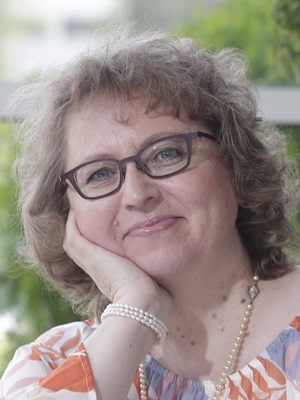
Kaisa Miettinen
University of Jyväskylä, Finland
Decision Support with Interactive Multiobjective Optimization Methods and Software
We encounter multiobjective optimization problems in various domains when we must make a decision while considering several conflicting objective functions simultaneously. Because of the conflict, we can identify so-called Pareto optimal solutions representing different trade-offs and we need some additional information to order these solutions. Typically, we assume to get preference information from a domain expert called a decision maker. Multiobjective optimization methods support the decision maker in finding the best balance among the trade-offs, that is, the most preferred solution.
In this talk, I concentrate on interactive methods, where the decision maker augments the problem formulation with domain expertise and directs an iterative solution process with preferences. In an iterative fashion, the decision maker gains insight into the interdependencies and trade-offs among the conflicting objective functions and learns about the feasibility of the preferences. Based on the learning, the decision maker can update the preferences and eventually get convinced of the quality of the most preferred solution. I demonstrate the advantages of some interactive methods with real examples. In addition, I also give a brief overview of the modular, open-source software framework DESDEO that hosts different interactive methods and enables e.g. switching the method during the solution process to support the decision maker better.
Kaisa Miettinen is Vice-rector and Professor of Industrial Optimization at the University of Jyvaskyla. Her research interests include theory, methods, applications and software of nonlinear multiobjective optimization, in particular, interactive approaches. She heads the Research Group on Multiobjective Optimization and leads the thematic research area Decision Analytics utilizing Causal Models and Multiobjective Optimization (www.jyu.fi/demo). She has authored about 230 refereed journal, proceedings and collection papers, edited 20 proceedings, collections and special issues and written a monograph Nonlinear Multiobjective Optimization. She is a member of the Finnish Academy of Science and Letters and has served as the President of the International Society on Multiple Criteria Decision Making (MCDM) and Finnish Operations Research Society. She has served in the editorial boards of ten international journals and belongs to the Steering Committee of Evolutionary Multiobjective Optimization. She has worked at IIASA, International Institute for Applied Systems Analysis in Austria, KTH Royal Institute of Technology in Stockholm, Sweden and Helsinki School of Economics, Finland. She has received the Georg Cantor Award of the International Society on MCDM for developing innovative ideas in the theory and methodology and was appointed as the OR Person of the year in 2023 by the Finnish Operations Research Society.
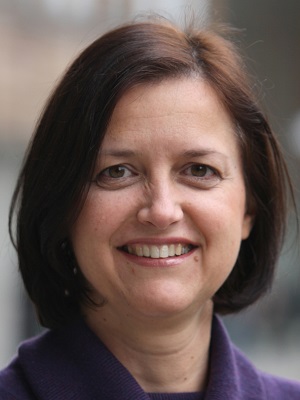
Sanja Petrovic
University of Nottingham, UK
Operational Research challenges in healthcare
Various Operational Research methods have been developed for all levels of decision-making in healthcare including strategic level, for example, for capacity planning, location of facilities, services to be offered, facility layout, etc; tactical level, for example, for supply chain management, equipment selection, financial resource allocation, staffing levels, etc; and operational level, for example, for appointments booking, personal scheduling, inventory replenishment, etc.
This talk will discuss the role of Operational Research, Data Science and Artificial Intelligence as related disciplines in a number of healthcare problems. First, this talk will introduce the problem of radiotherapy planning of patients and a Case-based Reasoning system developed to support this decision-making process. Then scheduling problems in healthcare including appointments booking, and future work on junior doctor rotas will be discussed. The role of data mining, especially some innovative ways of patients clustering we are developing, will be presented. The focus will be on the real-world problems present in the healthcare institutions we have collaborated with. The developed methods will be presented, formula free.
The talk will complete with insights into challenges that research with healthcare institutions may pose, and some directions for future research work.
Sanja Petrovic is a Professor of Operational Research (OR) in Nottingham University Business School, UK. She has conducted and led multi-disciplinary research into development of models, heuristics and algorithms for a variety of real-world optimisation and scheduling problems, including radiotherapy planning, scheduling of patients, employee timetabling, production scheduling, vehicle routing problems and university timetabling. Her research areas include optimisation methods and meta-heuristics, case-based reasoning, multicriteria decision making, data-mining, and fuzzy sets and fuzzy logic. Sanja has been the principal and co-investigator on projects mostly funded by Engineering and Physical Sciences Research Council in the UK (EPSRC) and Technology Strategy Board. Sanja was a Vice-president of the UK OR Society in two terms (2013-2018), the President of the UK OR Society (2025-2026), Chair of the Committee of Professors of OR in the UK (COPIOR) (2018–2021), and a Co-ordinator of the EURO Working group on Automated Timetabling since 2006. She is a Member of the International Advisory Board of the IMA Journal of Management Mathematics, Associate Editor of the Journal of Scheduling and a member of the Editorial Board of the Yugoslav Journal of Operations Research (YUJOR). She was Chair of the UK OR conference – OR53, held in Nottingham in 2011. She has published around 60 peer-reviewed papers in international scientific journals and 30 book chapters and has supervised 19 PhD students to completion. Sanja was included in the prestigious Stanford University Top 2% Scientists Ranking in 2023.

Leonidas Sakalauskas
Vytautas Magnus University, Lithuania
OR behind modeling and simulation of social-behavioral phenomena
The application of digital models to study social sciences and humanities issues has been undergoing rapid development during the last decades. It is natural to assume that in the current historical time when many delicate socio-political and technogenic challenges have to be dealt, it is essential to resort to OR to overcome them. The paradigm for understanding today’s social-behavioral phenomena is created and studied based on digital operationalization, multi-agent modeling, neutrosophy, structural equation modeling (SEM), and reflexive game theory. The “tragedy of the commons” in physical and digital spaces (G. Hardin, 1968, G.M. Greco and L. Floridi, 2004) is taken as a subject for consideration, emphasizing the role of consensus among agents (individuals, users, customers) regarding their collective decision making. The role of cybernetic law of requisite variety and mpossibility theorems (including Arrow and Fisher-Lynch-Paterson theorems), is explored in constructing consensus algorithms (V. Gisin, 2023). Conjectures, the solution of which opens the way to solving the challenges of social-behavioral phenomena using evidence-based tools, are formulated and discussed as well.
Leonidas Sakalauskas – Professor, Hab. Dr., Vytautas Magnus University, Lithuania, author of more than 300 scientific publications in operation research, queueing theory, stochastic and metaheuristic optimization, digital philosophy, created a paradigm of modelling and simulation of social-behavioural phenomena in creative societies. He is creator of LitORS, launched organisation of three EWG‘s, is a key organiser of about 30 international and national conferences, one of which is registered in Guinness record book
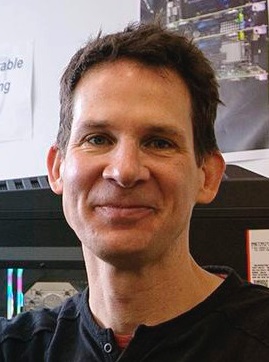
Oliver Sinnen
University of Auckland, New Zealand
Scheduling, key to the efficiency of parallel computing
Computers, in all their forms from smartwatches to supercomputers, are a major enabling technology for remarkable advances in so many domains. Today, most of those computing systems have more than one processor (or core). But what to do with all those processors and how to use them efficiently?
Scheduling of the computing tasks and workloads is key to answer that question. Here scheduling refers to the allocation of tasks and workloads to processors and their ordering for execution, while optimising for performance. In the large majority of the cases, such scheduling is a hard combinatorial optimisation problem. In this talk we look at scheduling problems of parallel computing and the different solution techniques that are employed to solve them. This does not only address the meaningful scheduling of computations, but also the consideration of communication (data transfer) between the processors.
New challenges emerge, for example from the breathtaking advances in machine learning and its seemingly insatiable hunger for computing power. To tame the corresponding huge energy consumption, multi-objective scheduling approaches are necessary that not only minimise execution time, but also look at the optimisation of power and energy consumption.
Oliver Sinnen is Professor at the University of Auckland (UoA), New Zealand, in the Department of Electrical, Computer, and Software Engineering, leading the Parallel and Reconfigurable Computing Lab. He graduated in Electrical and Computer Engineering at RWTH Aachen University, Germany and received his PhD from Instituto Superior Técnico, University of Lisbon, Portugal. Oliver’s research is situated in the area of parallel computing and programming, with focus on scheduling algorithms for parallel systems. He also works in reconfigurable computing and acceleration with FPGAs and led a team at the UoA contributing to the development of the Square Kilometre Array (SKA) radio telescope. Oliver is the sole author of the highly cited research monograph “Task Scheduling for Parallel Systems”, Wiley. He is editor of two major parallel computing journals and has served on 100+ programme committees of parallel computing conferences.
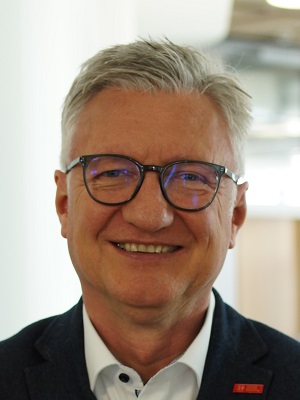
Thomas Spengler
Technische Universität Braunschweig, Germany
Green Steel Production in Europe – Perspectives and Challenges
Due to climate change, decarbonizing industrial processes is highly important. Regulatory instruments have been introduced to mitigate industrial greenhouse gas emissions, the most important of which is the EU Emissions Trading System. In Europe, the steel industry is responsible for around 20% of these emissions mainly resulting from coal-based production processes. Although technologies for low-carbon steel production exist, their integration into integrated steel mills requires high investments and leads to significant changes in material and energy demand and the resulting cash flows. In addition, the replacement of existing production facilities has an impact on the allocation and demand for emission allowances. Steel manufacturers are therefore faced with decisions regarding the transformation of their production infrastructure in a complex regulatory and economic environment. Such decision-making processes can be supported by methods of production management and Operations Research, whereby the design of advantageous transformation pathways using mathematical optimization is particularly important. The presentation will focus on the techno-economic modeling of strategic transformation pathways and the determination of prospective solutions based on the optimization of the resulting discounted cash flows.
Prof. Dr. Thomas S. Spengler began his academic career with a doctorate at the Institute of Industrial Production and the French-German Institute for Environmental Research at the Karlsruhe Institute of Technology (KIT) in 1994. He completed his habilitation at KIT in 1998. Since then, he has been a full professor, holder of the Chair of Production and Logistics, and, since 2008, director of the Institute of Automotive Management and Industrial Production (AIP) at the TU Braunschweig (Germany). Since 2014, he is also an adjunct professor and member of the Graduate School of Engineering at the University of Rhode Island (USA). From 2016 to 2020, he was the Department Editor of “Operations and Information Systems” for the “Business Research” journal. Since 2021, Prof. Dr. Thomas S. Spengler has been the Department Editor of “Operations” for the “Schmalenbach Journal of Business Research (SBUR)”. Since 1999, he has also been an editorial board member of several journals, e.g., European Journal of Operational Research, OR Spectrum, and Production and Operations Management. Besides, Prof. Dr. Thomas S. Spengler has been a member of the Scientific Commission of the German Council of Science and Humanities since 2020. He was a board member of the Automotive Research Centre Niedersachsen (NFF) and the Cluster of Excellence “SE²A – Sustainable and Energy-Efficient Aviation”. Additionally, he has been a Battery LabFactory Braunschweig (BLB) board member since 2023.

Joanna Sułkowska
Warsaw University, Poland
Topology in Biological Matter: New Ways to Use Entanglement in Structural Biology
We have been aware of the existence of knotted and slipknotted proteins for over 30 years; however, the potential of entanglement in proteins has not been fully explored. From the perspective of chemistry and soft condensed matter, it is known that knots can perform various functions, such as increasing thermal or mechanical strength. During this lecture, I will show that the vast majority of knotted proteins have the simplest type of knot, and that the presence of knots is not preferred in any of the three domains—Bacteria, Eukaryota, or Archaea. Moreover, there is no organism without at least one knotted protein.
Recent advances in machine learning methods in structural biology have opened up new perspectives for protein analysis and prediction. I will demonstrate how machine learning techniques can be used to incorporate knotting into structural biology, enabling the design of fit-for-purpose new proteins that enhance or manipulate protein activity. Additionally, I will discuss extensions toward the design of robust polymer–knotted-protein hybrid materials.
Dr hab. Joanna Sułkowska, prof. UW is a head of the “Interdisciplinary laboratory for modeling biological systems” at the Centre of New Technologies at the University of Warsaw. In 2007 she defended with distinction her doctoral dissertation in the field of biophysics, devoted to the characteristics of mechanical properties of proteins. In 2016 she obtained her habilitation at the Faculty of Chemistry of the University of Warsaw and professor position in 2018. For several years, as part of a postdoctoral internship, she worked at the University of California, San Diego. She spent several months as a visiting professor at MIT and the California Institute of Technology.
She is an author of over 90 scientific publications, including Nature Structure & MB, JACS, PNAS, PRL, NAR, where she combines theoretical approach with experimental data. For her greatest scientific achievement so far, she considers a discovery and characterization of non-trivial topology in proteins such as knots, slipknots, lassos and theta curves, the determination of mechanisms of their formation and relationships with biological function. She has also worked successfully on antagonists for GPCR-type proteins (CB1 and CB2).
Joanna Sulkowska has been awarded many times for her scientific achievements. She received e.g. Installation and Young Investigator award from the European Molecular Biology Organization (EMBO), grants from the National Science Centre, the Foundation for Polish Science, and the Ministry of Science and Higher Education in Poland (Idea Plus based on ERC Starting grant application). She is the winners of the 2018 National Science Centre Award in Poland in the field of Life Sciences (for people under 40 years), and award from MNiSW, 2020. She received the international prize Unesco-L’Oreal ”Rising talent”.



